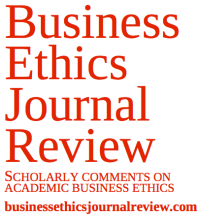 The item below contrasts the NBA’s original conservative approach to managing their little corner of the Covid-19 pandemic with the approach the league is taking this year. It’s worth knowing that the National Basketball Association is an odd sort of entity, legally speaking. Its own constitution stats that the Association is a contract among members (i.e., among team owners). The term “contract” implies a clear, arm’s-length business relationship. But the Association is also, well, an association, which implies a closer relationship, more like a (legal) partnership. So is there a “there” there? Is there a single decision-making entity? Or a loosely-or-closely knit network of individual team owners? (For more on the legal structure of the NBA, see “What is the NBA?,” a scholarly paper by Nadelle Grossman.)
The item below contrasts the NBA’s original conservative approach to managing their little corner of the Covid-19 pandemic with the approach the league is taking this year. It’s worth knowing that the National Basketball Association is an odd sort of entity, legally speaking. Its own constitution stats that the Association is a contract among members (i.e., among team owners). The term “contract” implies a clear, arm’s-length business relationship. But the Association is also, well, an association, which implies a closer relationship, more like a (legal) partnership. So is there a “there” there? Is there a single decision-making entity? Or a loosely-or-closely knit network of individual team owners? (For more on the legal structure of the NBA, see “What is the NBA?,” a scholarly paper by Nadelle Grossman.)
>>>
LINK: Contact Tracing: The NBA Has Spent This Season Caught Between Its Moral And Business Compass
From the night the pandemic arrived on the NBA’s doorstep, settling into an arena in Oklahoma City a year ago, the response from the league was firm, with a domino effect throughout the sports world. On March 12, 2020, the day after the Jazz-Thunder postponement that saw the 2019-20 season suspended, the NBA released a set of policies restricting players from group workouts and practice, as well as requiring them to remain in the home markets of their teams for six days. Players on teams that had played the Jazz within 10 days of March 11 were advised to self-isolate for two weeks. Another 24 hours later and the season moratorium was extended to April 10, which eventually stretched to May 1 in a statement from Adam Silver, ultimately shifting to the decision by the league’s board of governors to resume at Disney, in a Bubble, on July 30.
…
In contrast, this season has seen the NBA attempt to toe the line of normalcy and rather than continue to err on the side of concentrated caution, there’s been a perceptible shift in approach. Returning to a Bubble was deemed a non-starter by players for its psychological toll and by the league for its financial one, but returning to home markets, fans and travel signaled a shift toward assuming risks in exchange for revenue….
What do you think?




Recent Comments